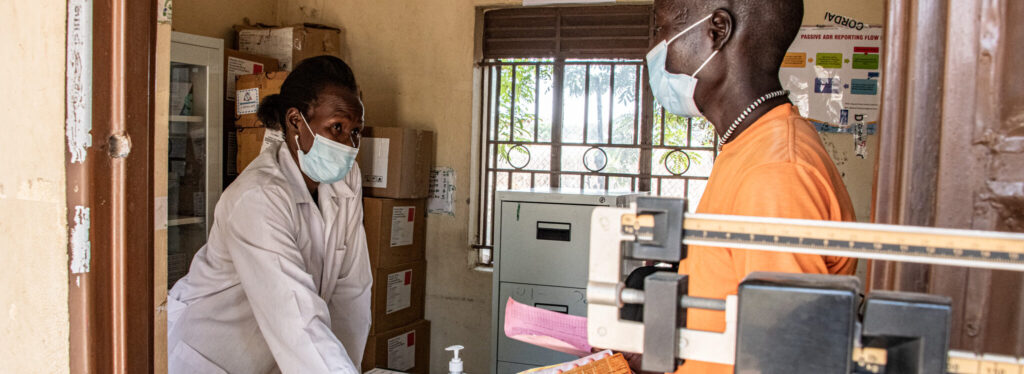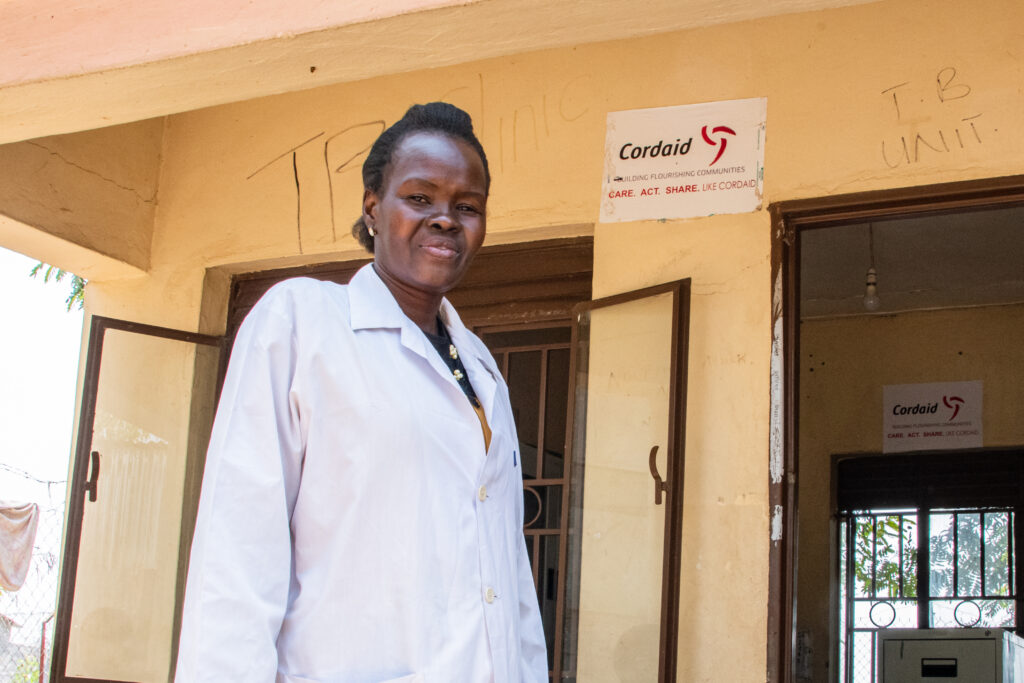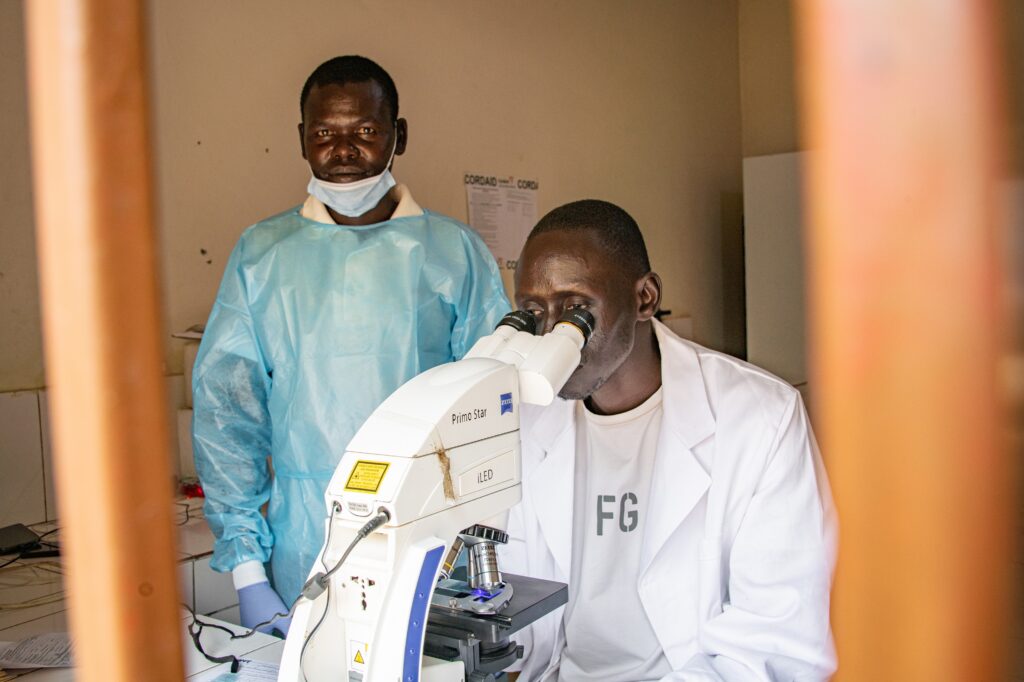Tuberculosis (TB) remains one of the deadliest infectious diseases in the world. In 2022, it killed 1.3 million people. Cordaid is part of a professional community working to tackle this preventable, treatable and curable disease. Since 2015, alongside thousands of collaborators, we have been strengthening TB healthcare in South Sudan. Let’s hear from some medical professionals who deliver life-saving healthcare to their communities.

We are in Gurei Pimary Health Care Centre, located in the capital city of Juba. This is one of the 172 health facilities Cordaid supports throughout the country. Up to 30 patients visit the TB unit every day.
With funding from the Global Fund, Cordaid supports the Ministry of Health’s National TB programme. We train medical staff and provide medicine for HIV and TB to health facilities across the country. We also equip laboratories with microscopes and GeneXpert, a machine that detects TB, among other infectious diseases. The programme reaches people in the most remote and hard-to-access areas by training community workers on prevention and treatment.
Overburdened health system
Jackline Wani is the clinical officer in Gurei, specialising in TB. In 2022, Jackline and her colleagues diagnosed 429 people. Treating this disease is a challenge anywhere, let alone in a country where poverty, hunger and conflict weaken an already overburdened health system.
‘I feel good about helping people. The disease is very hard on them and the community is grateful for our support.’
‘In South Sudan, TB is very common’, she says. ‘I chose this work because I see people suffering; this is my way to help them. TB makes people very weak, to the point they can’t work anymore. They usually have a strong cough, lose weight, and suffer from fever. It spreads quickly, and the worst part is that you can die from it.

Challenges
‘Treating TB is difficult. Patients must take their medicines every day for six months. If we fail to do it right the first time, the virus can become resistant to the medication. After that, it will be even harder to treat and can become very dangerous for the patient.
‘One of the biggest challenges is hunger. The treatment increases the patient’s appetite, and they need to eat more. With the economic crisis, families can’t afford enough food. Patients stop the treatment because of hunger.
‘Sometimes, I also fear for my own life. The conditions in South Sudan are bad. This consultation room is not up to standard. It is where we stock the medicine, where we see new patients and diagnosed patients at the same time. There is no ventilation. So, when a patient coughs, the particles stay in the air, and you can get infected. But we can’t stop. People would suffer.
‘I feel good about helping people. The disease is very hard on them, and the community is grateful for our support.’
‘This machine allows us to save lives.’
Next, we meet Chuol Thot Bany, a lab technician in Gurei. His job is essential, as he prepares and tests samples to diagnose patients.
‘I love my job so much. It has been my passion since I was in high school. Especially fighting TB because it’s hurting a lot of people.

Essential equipment
Thankfully, this unit gets support from partners like Cordaid. Our lab equipment is good. Cordaid gave us a microscope and a GeneXpert machine two years ago, and they still work well.
‘I really like this microscope. You can switch to different settings to observe malaria, tuberculosis, typhoid, and stools. This microscope makes our lab much better than it used to be.
‘When I turn the GeneXpert machine on, I can see the results very clearly. This gives me a lot of confidence in my work. This machine allows us to save lives.’
Achievements
In 2022, this collaborative effort resulted in the diagnosis of 12,477 people with TB across South Sudan, achieving a treatment success rate of 74%.
We are continuously improving infrastructure and training to reach even more people. Tackling tuberculosis is a long and arduous challenge, but with the right tools and appropriate funding, we can make significant strides.
Text and photos by Adriana Parejo Pagador.